Budget 2022: GST will go up to 8% next year, then 9% from 2024; extra S$640 million to cushion impact
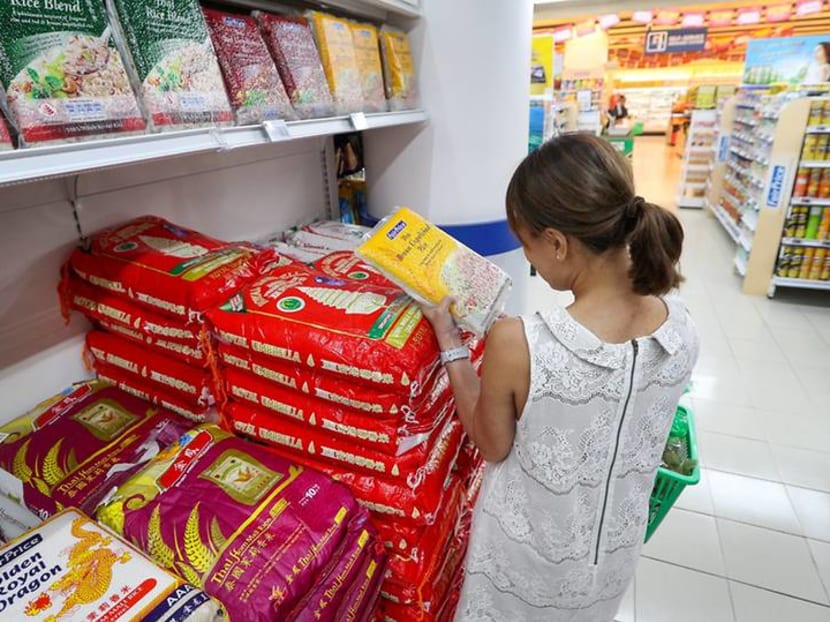
File photo of a shopper at a Singapore supermarket. (Photo: MCI)
SINGAPORE: The Government will delay the planned Goods and Services Tax (GST) hike to 2023 and stagger the increase in two steps, Finance Minister Lawrence Wong said in his Budget speech on Friday (Feb 18).
The first increase from 7 per cent to 8 per cent will take place on Jan 1, 2023, and the second increase from 8 per cent to 9 per cent will take place on Jan 1, 2024.
This comes after Prime Minister Lee Hsien Loong said in his New Year message in December that the Government will have to start moving on the planned hike this year, given that the economy is emerging from COVID-19.
The plan to raise the GST by two percentage points, from 7 per cent to 9 per cent, was first announced in 2018 during then-Finance Minister Heng Swee Keat’s Budget speech.
Mr Wong said on Friday that the GST hike is necessary to support Singapore’s healthcare expenditure and to take care of its seniors.
On the timing, Mr Wong said he has considered the overall situation – the pandemic, the state of Singapore’s economy and the inflation outlook.
“Our revenue needs are pressing. But I also understand the concerns that Singaporeans have about the GST increase taking place at the same time as rising prices.”
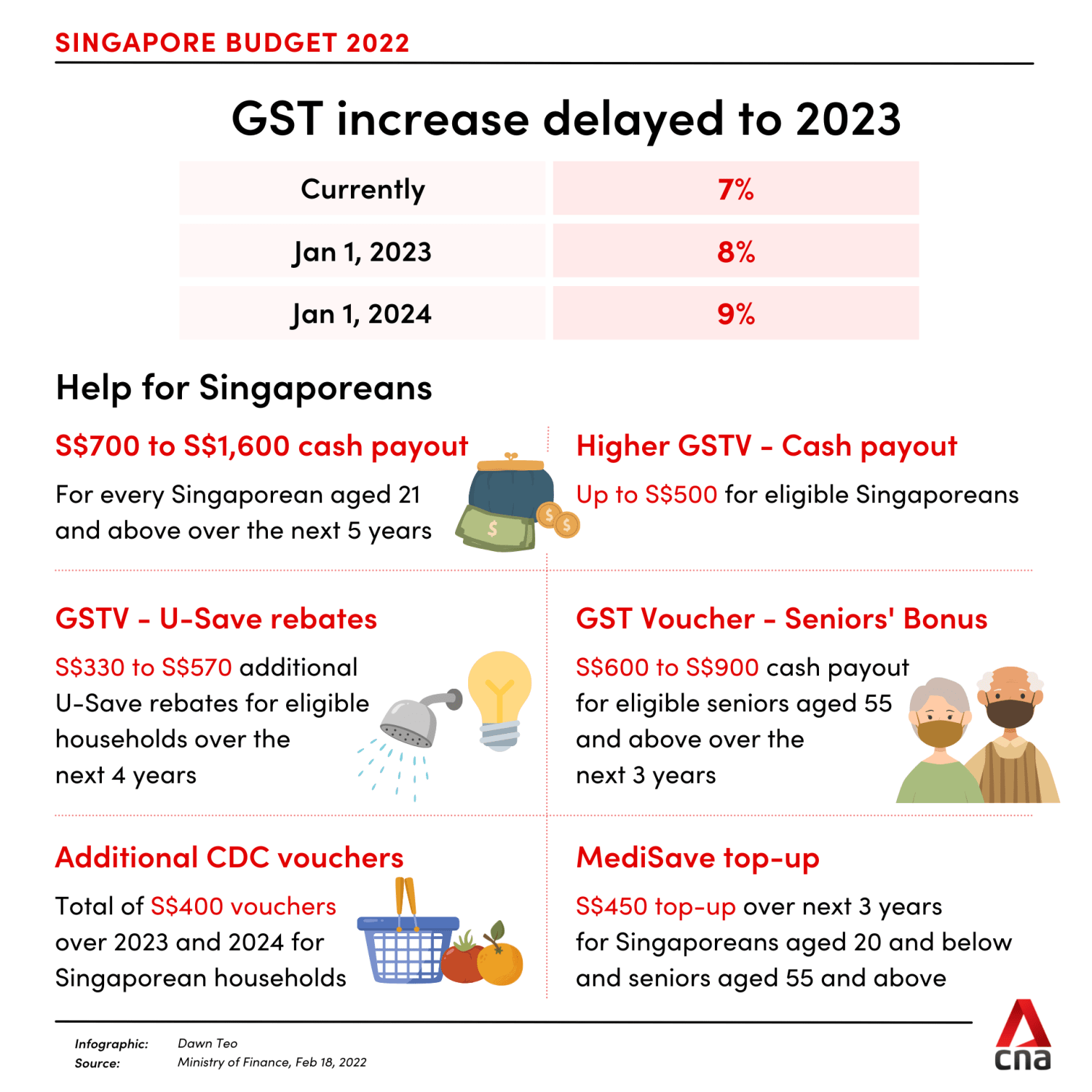
The Government will continue to absorb GST on publicly subsidised healthcare and education, he said. Town councils will get an additional S$15 million a year to cover the additional GST payable on service and conservancy charges.
Government fees and charges will not rise in 2023. This applies to licence fees, as well as fees charged by government agencies for the provision of services. This includes school fees, Institute of Technical Education and polytechnic fees, and public car park charges.
“To address concerns that businesses could use GST as a cover to raise prices, the Government will stand up a Committee Against Profiteering,” Mr Wong said, adding that it will be chaired by Minister of State for Trade and Industry Low Yen Ling.
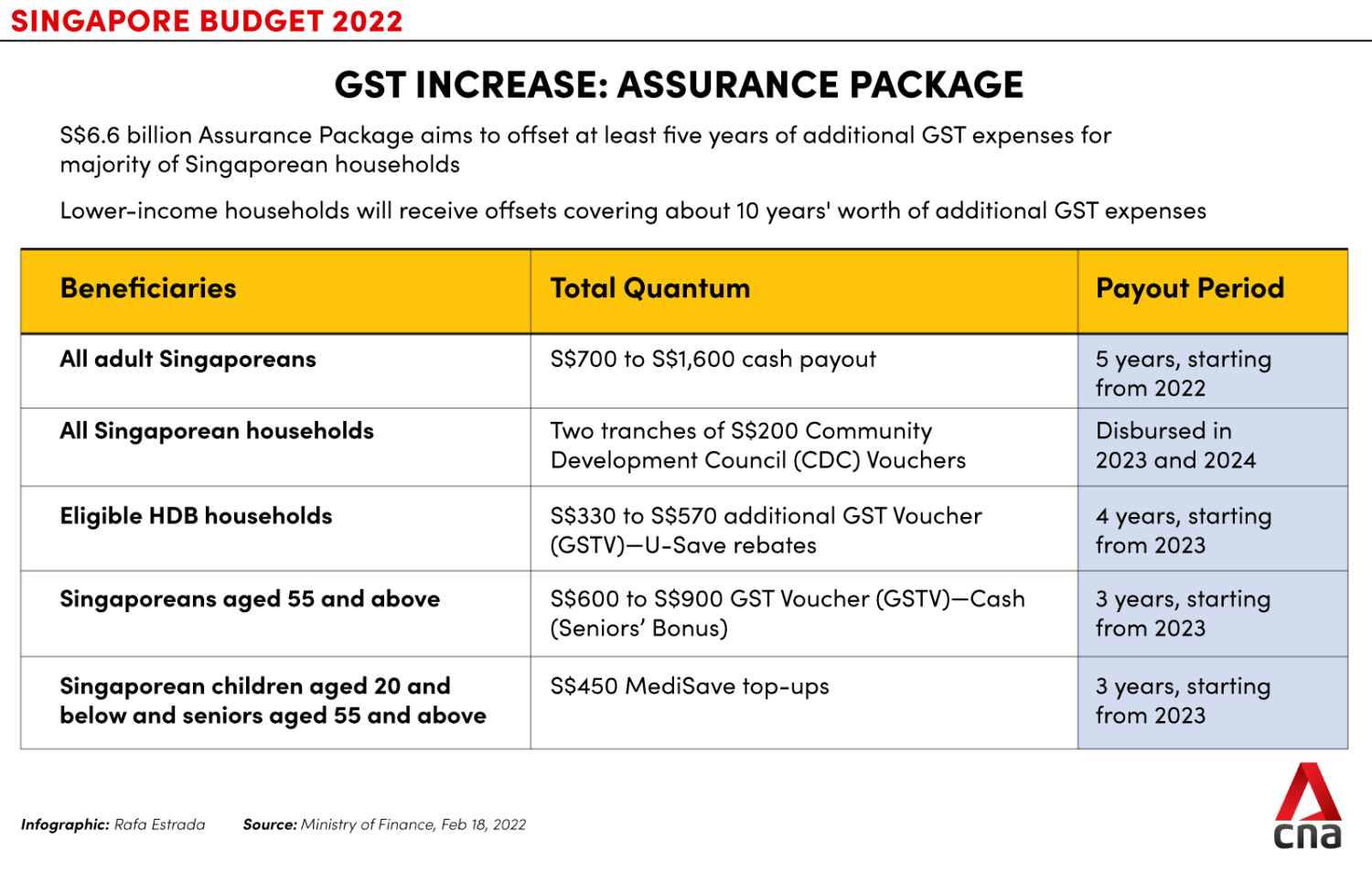
CUSHIONING THE IMPACT
To cushion the impact of the GST hike, the Government will add S$640 million to the S$6 billion Assurance Package – announced in 2020 – and improve the GST Voucher (GSTV) scheme.
Both the Assurance Package and improved GSTV scheme will be implemented together before the GST hike so Singaporeans can benefit from both at the same time, Mr Wong said.
The enhanced Assurance Package will cover at least five years of additional GST expenses for the majority of Singaporean households, and about 10 years for lower-income households, he said.
Under the package, every adult Singaporean will get cash payouts of between S$700 and S$1,600, while eligible seniors will get a special GSTV – Cash (Seniors’ Bonus) of between S$600 and S$900.
Eligible Housing Board households will get extra U-Save rebates of S$330 to S$570 depending on flat type, while all Singaporean children and seniors will get MediSave top-ups of S$450.
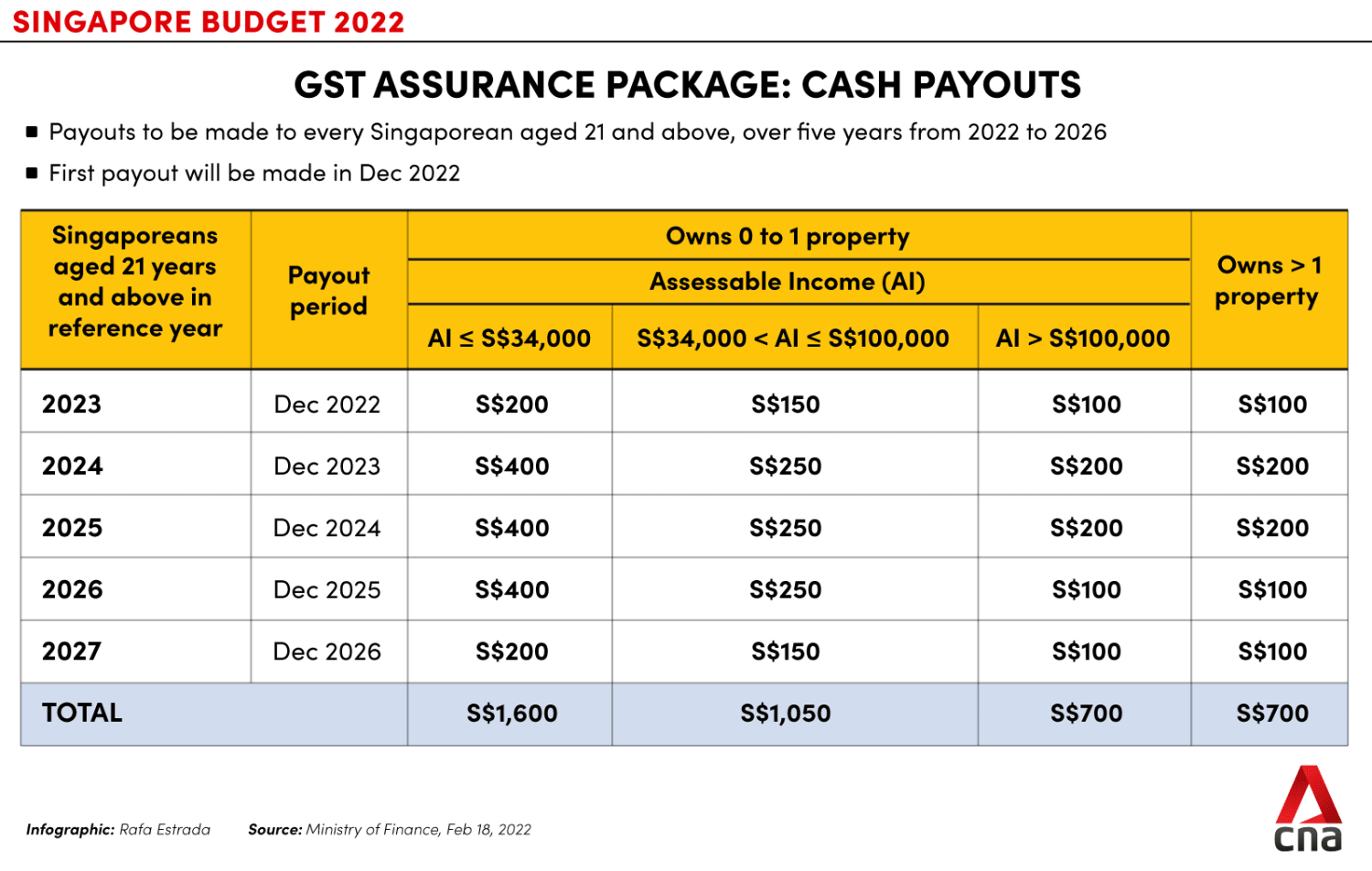
All Singaporean households will also get two tranches of CDC vouchers worth S$200 each in 2023 and 2024. The vouchers can be used at all participating heartland merchants and hawkers as well as major supermarkets.
“Even with these offsets, some vulnerable households may require more support,” Mr Wong said, adding that those with urgent needs can approach their Citizens’ Consultative Committees (CCC) for help.
The Government will top up the CCC ComCare Fund by S$5 million over five years and provide self-help groups with a total of S$12 million over four years.
Close to S$40 million will be set aside under the Productivity Solutions Grant for businesses to apply for subsidised accounting and point-of-sale solutions.
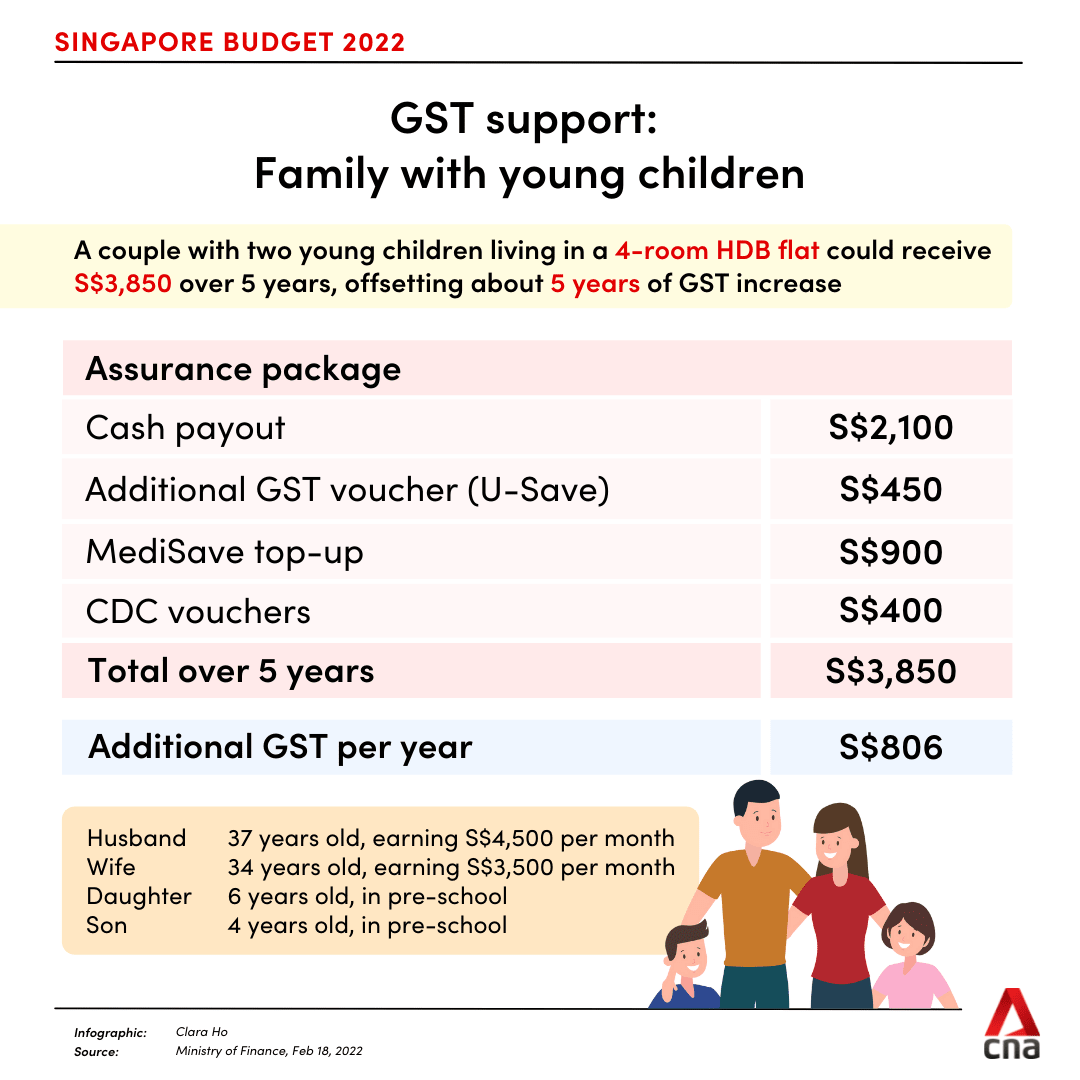
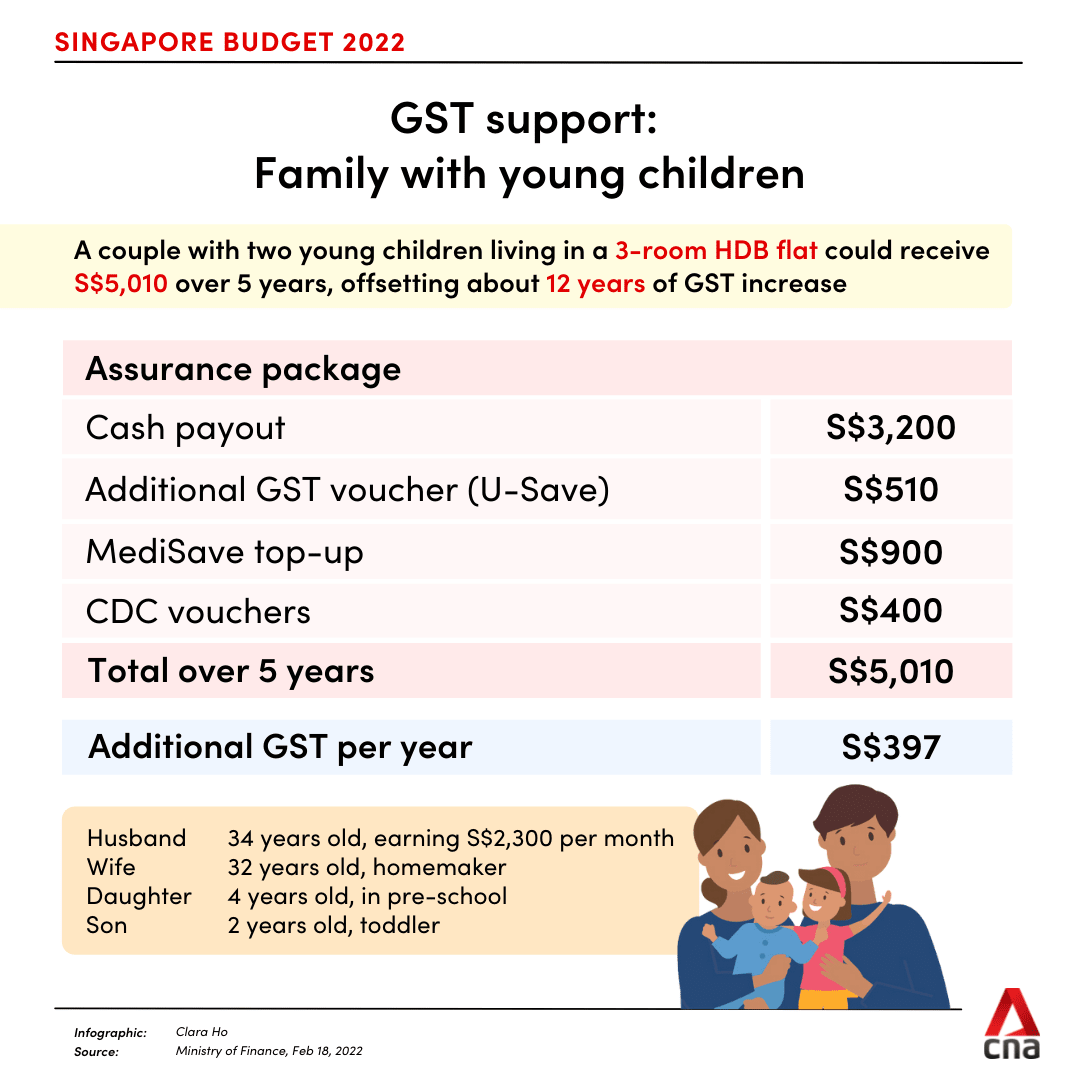
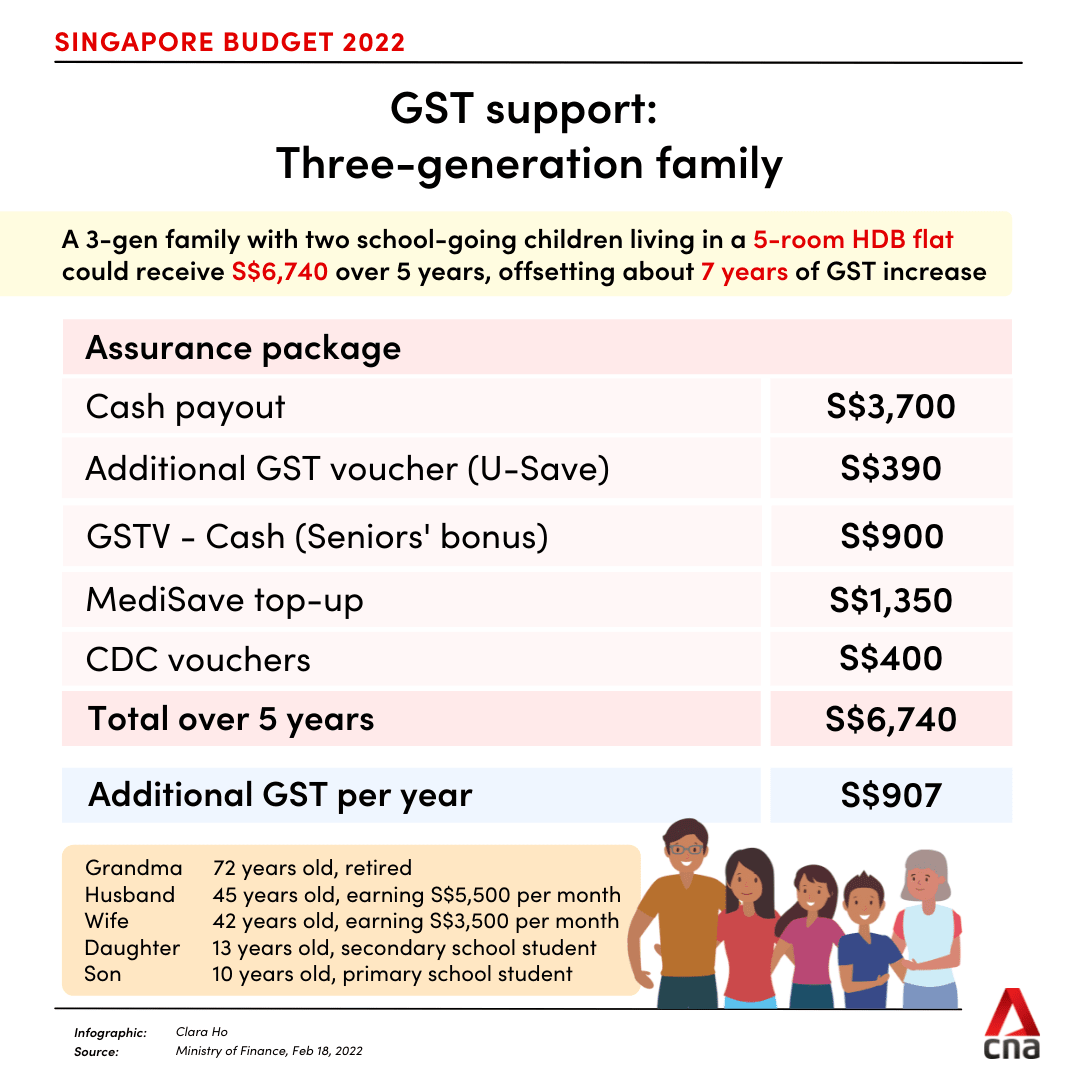
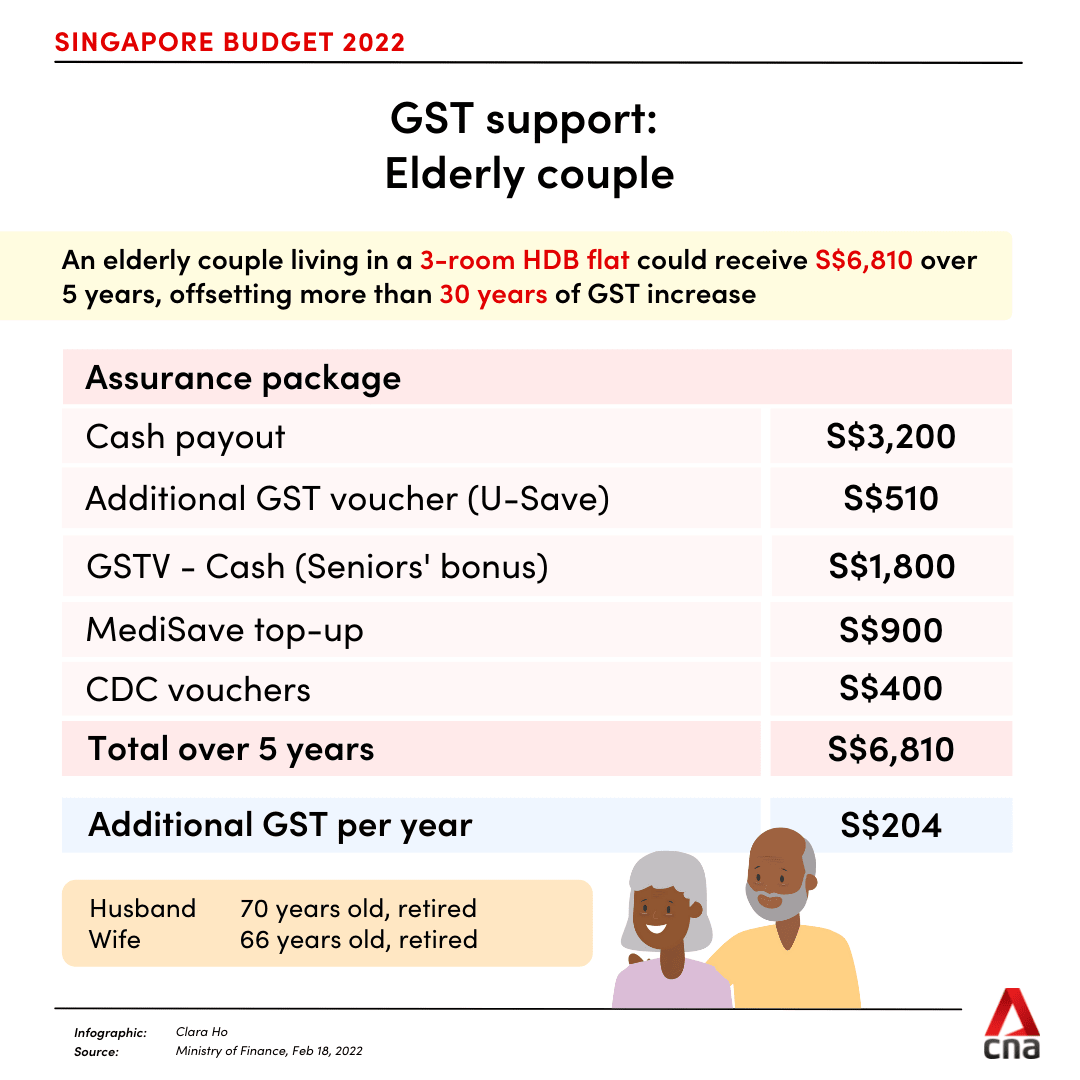
GST VOUCHER SCHEME IMPROVEMENTS
The permanent GSTV scheme currently has three components: Cash payout, MediSave top-up and utilities rebates.
Under the improvements, the service and conservancy charges rebate will be made a permanent component of the GSTV scheme.
The assessable income threshold for GSTV – Cash will be increased from S$28,000 to S$34,000 to cover more Singaporeans.
The GSTV – Cash quantum will also be increased to S$500 for those living in homes with annual values of S$13,000 and below; and to S$250 for those living in homes with annual values of between S$13,000 and S$21,000.
“The enhanced permanent GSTV scheme will provide continuing offsets for the GST expenses of lower- to middle-income households and most retiree households beyond the transitional period covered by the Assurance Package,” Mr Wong said.
For instance, the improved GSTV will fully offset the total GST that retiree households living in one- to four-room HDB flats have to pay, while many retiree households in bigger flats will also have their GST offset by a “significant amount”, he said.
“For low-income households who do not have elderly members, the GSTV will offset about half their total GST expenses every year,” he added.
Mr Wong said low-income households in particular will be “well looked after”, adding that the measures ensure they get “significant support on a continuing basis”.
“This is why the GST increase will not hurt low-income households. For them, the impact of the increase in GST will be neutralised.”






